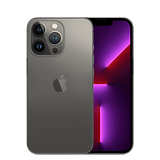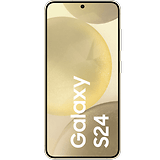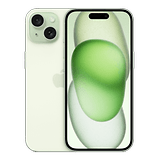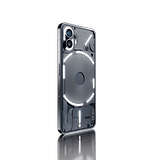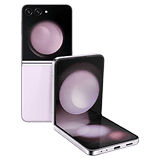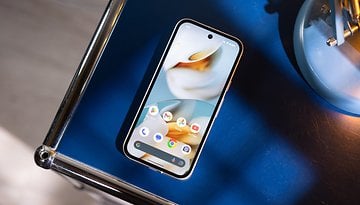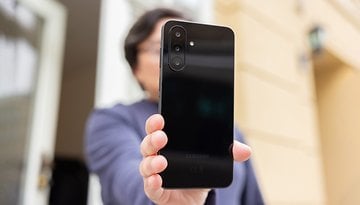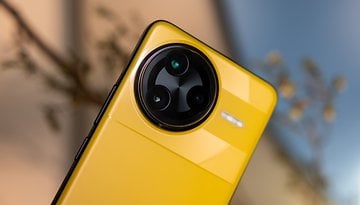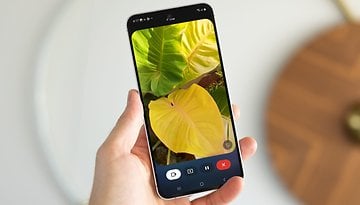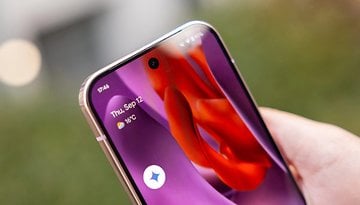iPhone 13 Pro Review: Still a Great Smartphone in 2023
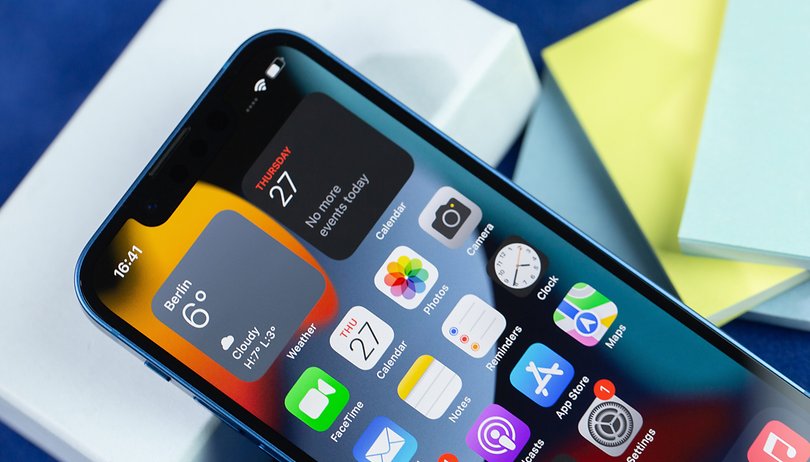

The iPhone 13 Pro, at first glance, resembles its predecessor with its aluminum body, triple rear camera setup, and a display notch. However, on closer inspection, notable changes include a smaller notch, a larger camera module, and fresh color options. Offering a host of features likely to please many users, this article presents a comprehensive review of the new iPhone 13 Pro.
Good
- Superb 120 Hz display
- Excellent battery life
- Great new camera module
Bad
- USB-C port is long overdue
- "Fast" charging at with 20 watts
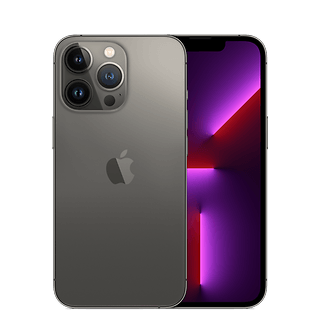
Apple iPhone 13 Pro in a nutshell
The iPhone 13 Pro is still an absolutely competitive smartphone in 2023. Of course, the 48-megapixel camera and the legendary Dynamic Island are missing compared to the new 14 Pro. But honestly: If you have not gotten used to it, you will not miss anything here. In terms of display, performance, etc., the iPhone 13 Pro is still an absolute top model this year.
Apple itself has since removed the iPhone 13 Pro from the official iPhone lineup. However, you can still find numerous offers for last year's Pro model on the free market and at various providers. The cheapest version with 128 GB of storage can occasionally be found below the $1,000 mark. Which is essentially the same asking price for its successor, which is why we would recommend the newer model.
Design: Never change a winning formula
The fact that the 2021 iPhone received a full-fledged number is perfectly fine with me. Even though Apple has taken its design cues entirely from the iPhone 12, without any major change.
Only iPhone connoisseurs out there can spot at a glance the trio of differences that set the iPhone 13 Pro apart from its predecessor: Firstly, the color, followed by a smaller notch, and the camera module arrangement.
What I liked:
- Beautiful design (this is a matter of personal taste).
- Great build quality.
- IP68 certification.
What I disliked:
- Still relatively large display bezels.
Visible changes in the iPhone 13 Pro
First of all, there are beautiful new colors to ogle at: Graphite, Gold, Silver, and my favorite: Sierra Blue. Apple stayed true to the angular and flat design of the iPhone 13 Pro. The sides are made from shiny stainless steel, and if you didn't put it in a protective like almost every iPhone owner would, it would be covered in fingerprints. Any crime scene investigator would have a field day with it.
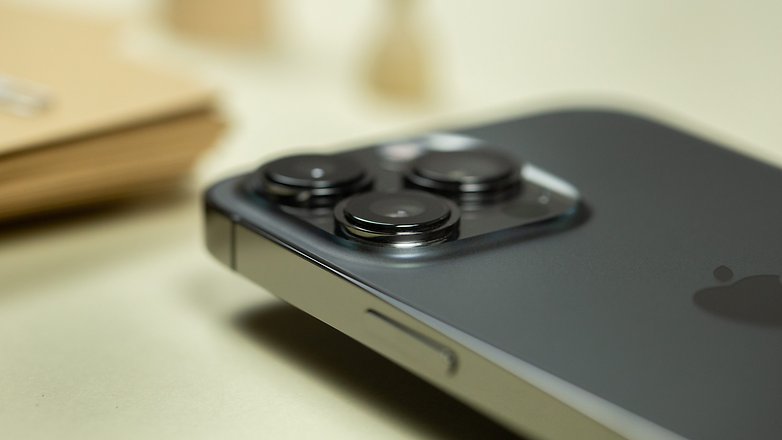
Point two would be the notch, which is about 20% smaller than before. However, the additional space on the display is hardly noticeable, just as little as the fact that YouTube videos on the iPhone 13 Pro are currently very slightly squeezed in the place of the notch in full screen. YouTube does not seem to have adjusted itself to this device just yet. However, if my colleague Stefan hadn't pointed it out to me, it wouldn't have caught my attention.
Lastly, there's the camera module at the back which has actually also visibly gotten significantly larger to accommodate the new, great camera features. Not only are the lenses themselves bigger, but they also protrude a bit more from the body. If you were to place it on a table without a protective case, the phone would lie crooked to one side.
iPhone 13 Pro: unseen changes
Other innovations in the design and manufacturing of the iPhone 13 Pro have mainly gone into the durability of the handset. Firstly, there's the display, which is supposed to be much more resistant than other screens thanks courtesy of a so-called Ceramic Shield. And then there is the back of the iPhone 13 Pro, which is supposed to have the hardest glass among all other smartphones. At the very least, our review unit still remains unscratched.
If the iPhone should fall into a pool, that's no problem either: It is IP68-certified and thus is waterproof for up to 30 minutes at a water depth of up to 6 meters. At the bare minimum at that, too!
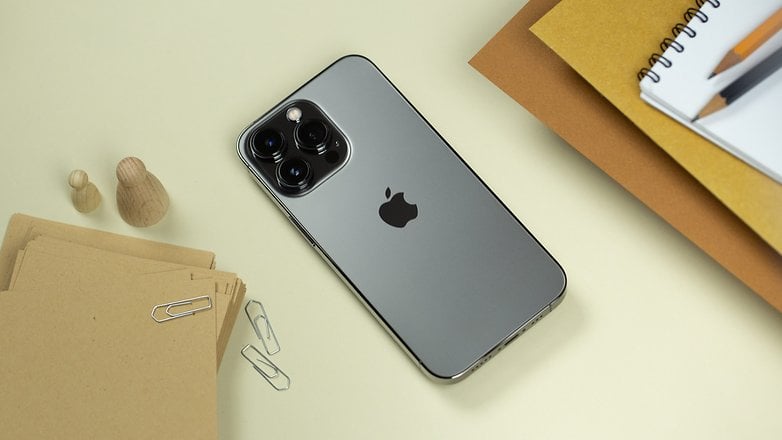
Protection or not, like all biology teachers, I advise having a protective cover! It offers real peace of mind, as long as you don't place the iPhone in your pocket with your keys just like me. Because doing so will inevitably lead to slight scratches over time.
Display: This is where my heart goes aflutter
The display is one of the best that I've experienced on a smartphone to date, hands down. Apple has finally caught up with the rest of the competition, and boy, did they outdo them at the same time!
What I liked:
- Buttery smooth ProMotion display.
- High screen brightness.
What I disliked:
- Adaptive refresh rate cannot be manually set.
The iPhone XDR display is still a feast for the eyes. Absolute eye candy. The comforting, buttery soft coating that wraps around my retinas and you wonder: Why only now? But before getting all critical about it with the "I've-always-mentioned-that-Android-has-had-this-for-so-long" chant, Apple didn't simply nail a 120 Hertz display into its latest iPhone.
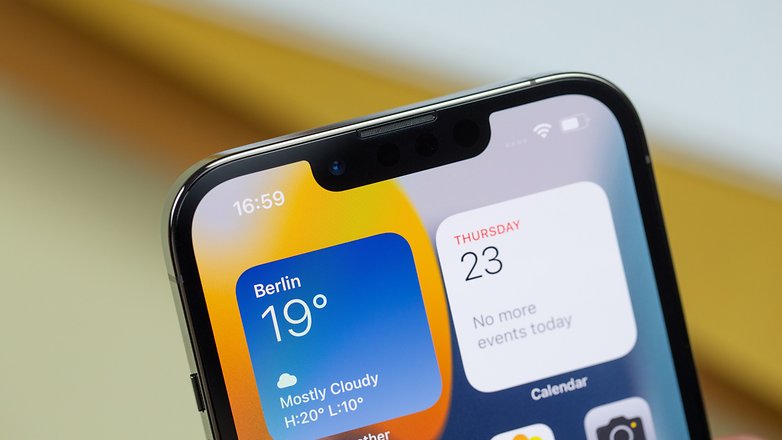
Rather, the iPhone screen is smart and adjusts its refresh rate to suit the situation. If you were to scroll down, the refresh rate would increase to 120 Hertz. If you do nothing, the refresh rate decreases to a mere 10 Hz. This naturally saves a lot of processing power and conserves battery life, even when the display is at its maximum brightness of 1,000 nits.
This is somewhat a bit like our actual heart. You know, the organ that pumps blood throughout our body. Apple has dubbed this new feature ProMotion, which is admittedly not so new in the smartphone market today.
Of course, the True Tone technology that is also installed in the iPhone 13 Pro and Pro Max that adjusts the white balance of the display to the ambient light is also a plus point as it makes reading more pleasant.
iOS on board: It doesn't get much better than this
The fact that iPhones are so popular is also due to the operating system. With iOS 15, Apple introduced a lot of new features, many of which also made it onto older iPhones - just as iOS 16 has now also made it onto the iPhone 13 Pro, giving the smartphone another breath of fresh air.
What I liked:
- Hardware and software are perfectly coordinated.
- Operation is a lot of fun with the 120 Hz screen.
- Update to iOS 16 brings many practical features.
What I disliked:
- -
Especially in terms of data protection, a lot has changed in iOS 15. With iCloud+, many functions came to the iPhone, which, for example, disguise the exact location of iPhone users and thus make life difficult for data collectors.
iOS 16 goes one step further here and provides additional security features. For example, you now get a warning if you really want to paste content from the clipboard into an app, and your albums in the gallery are better protected from foreign eyes by default.
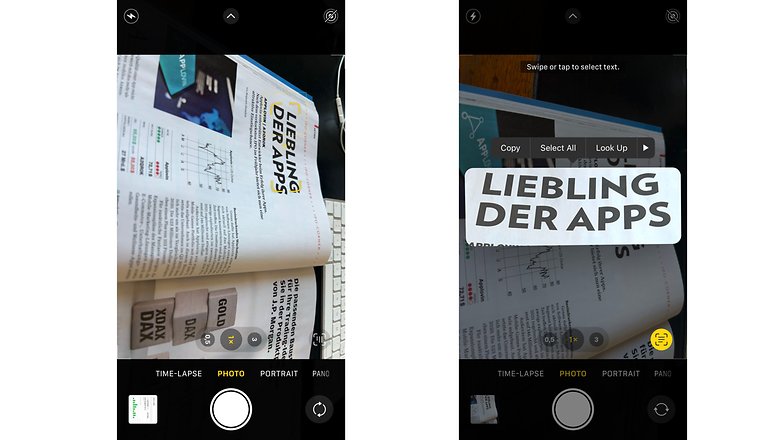
You can read about the features that have made it to the iPhone 13 Pro with iOS 16 in our big overview of the iOS 16. And since Apple's merry-go-round continues to turn reliably, the next iOS version is already in the starting blocks. Here you can read about the features you can look forward to in iOS 17, which will arrive in the iPhone 13 Pro in Fall 2023.
Performance: Even better thanks to A15 Bionic
When it comes to the SoC, the iPhone 13 series makes the usual step up by including a next-generation processor, with the A15 Bionic SoC gracing the handset in 2021.
Apple promises 50% more performance compared to its main competitor (probably the Snapdragon 888)—and 30 percent better graphics performance. Beyond those hard-to-follow numbers, all we can say is: This thing is just blazing fast .
What I liked:
- Excellent performance in games and interface.
- Sophisticated AI features work in real-time.
- A15 Bionic enables exciting camera features.
What I disliked:
- -
Camila has already covered the performance in more detail in our review of the base iPhone 13 model. Needless to say, you would want to head there for additional details about the A15 Bionic's performance.
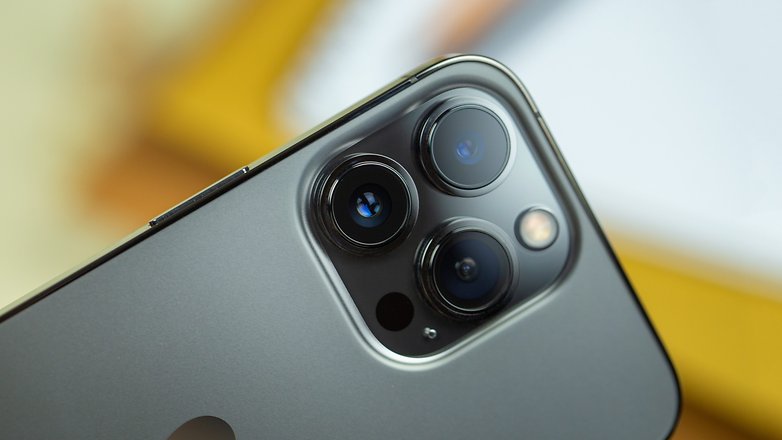
As with previous generations of Apple's processors, the A15 is still pretty up to any task you can throw at it in 2023. And different from other flagship processors from 2021 and 2022 on the Android camp, all without overheating issues.
Camera: Influencer in your sights
This paragraph was written by my colleague and camera specialist Stefan due to his expertise in the area. Many thanks for the great help!
If it weren't for the comically large camera module on the back, it would be all too easy to confuse the iPhone 13 Pro with its predecessor. But how much more image quality do the thick lenses really bring?
What I liked:
- Great image quality with natural colors.
- Fast app and quick autofocus.
- Cinematic Mode is really fun.
- Telephoto now sports triple zoom and OIS.
What I disliked:
- Confused auto-switching between macro and telephoto modes when shooting close-ups.
- Photographic styles can affect image quality.
Larger sensors like the 12-megapixel one here and a telephoto lens with image stabilization are found in the "little Pro": The iPhone 13 Pro in particular has made a huge leap forward on paper when it comes to the camera. This comes across as no surprise that the smartphone captures wonderful photos in daylight.
Colors are rich and pleasant - without looking oversaturated like some competitors from the Far East competitors (Oppo and Samsung). The HDR automatically saves details in dark and bright areas of the picture without killing the natural light mood.
Things look a little different, however, if you overdo it with the photography styles. Depending on your preference, pictures will then all look colder, warmer, or like they're made of bubblegum, consistently. If you want to give your Instagram channel a consistent look, you can bake it into your photos right out of the box.
It has to be said, though, that the Photographic Styles aren't quite as fine-tuned as images using the default settings. However, given the multitude of settings options, you can hardly blame Apple for that. If you were to tweak the contrast too much, you'll just have to live with watered-down areas of the image. However, if you're like 99 percent of people who don't take pictures with professional demands, then it shouldn't matter.

When shooting indoors, quality remains consistently good. However, the slower shutter speeds make themselves felt - photos blur faster, and hectic figures quickly become blurred. When it gets really dark, the camera app automatically switches to night mode. With exposure times of several seconds, it scrapes together the last photons even in the dimmest bars and creates a respectable photo.

One thing that I found to be particularly pleasing: The iPhone 13 Pro no longer irons everything out in an even brightness as the iPhone 12 Pro (Max) did, but leaves the very dark corners to be, well, really dark sometimes. Thus, the natural lighting mood is better preserved in the photos.
After Huawei now no longer plays an important role (or any for that matter), at least in the German market, there is currently no one who could hold a candle to Apple's hands-free long exposure.
Essentially, these statements can be applied across the board from the main camera to the ultra-wide and telephoto cameras as well. However, due to smaller sensors and shorter shutter speeds required in the telephoto range, the image quality drops drastically here compared to the main camera. This phenomenon can also be observed in almost all other smartphones.
When it comes to video mode, the iPhone 13 Pro raises the bar for smartphone filming by yet another notch. In addition to the great video quality, the new Cinematic Mode is particularly responsible for this. You can move the focus point in the picture with a tap of your finger.
Thanks to the frame-accurate depth map, the iPhone then exposes the subject and lets the foreground and background gently disappear in the bokeh. The fact that this works at a maximum of 1080p and 30 fps shows how CPU-intensive this trick is. Read more about Cinematic Mode in the following article.
This fall, Apple is going to crank it up a notch, because that's when the iPhone 13 will receive the ProRes 422 HQ codec, which shoots 4K video at 735Mbps - with 10-bit color resolution and 4:2:2 color subsampling.
That's a video codec commonly found on professional video cameras. Just for reference, we shoot all nextpit videos with a C200, in 4K60 at about 150 Mbps at 8 bits and 4:2:0. But the big question will be: Can the sensor even begin to max out the codec? I DAUT IT.
A battery like an eternal summer
Apple promises one and a half hours more battery life for the iPhone 13 Pro compared to its predecessor. In fact, the battery is so powerful in everyday use that the relatively slow charging speed becomes less and less important.
Wwhat I liked:
- Very long battery life.
What I disliked:
- No fast charging via 20 watts.
As I write these lines, the leaves are slowly turning shades of red and brown here in Berlin. The summer of 2021 was a bit like my work ethic on Monday mornings: barely there. And before you know it, they're gone again.
In contrast, how refreshingly long-lasting is the battery life of the iPhone 13 Pro: The battery has become even better compared to the iPhone 12 Pro, which by the way, is also better than that of the iPhone 13. Apple claims that the battery life of the Pro version has improved by 1.5 hours compared to the previous year's model.
I can confirm that claim is no hyperbole. The iPhone 13 Pro carried me through the day even under heavy loads. A good 14 hours of screen time was needed to get the iPhone 13 Pro to empty itself out. The new ProMotion feature seems to be partly responsible for this: Since the iPhone can lower its refresh rate down to 20 Hz, the smartphone also consumes significantly less energy during this time.
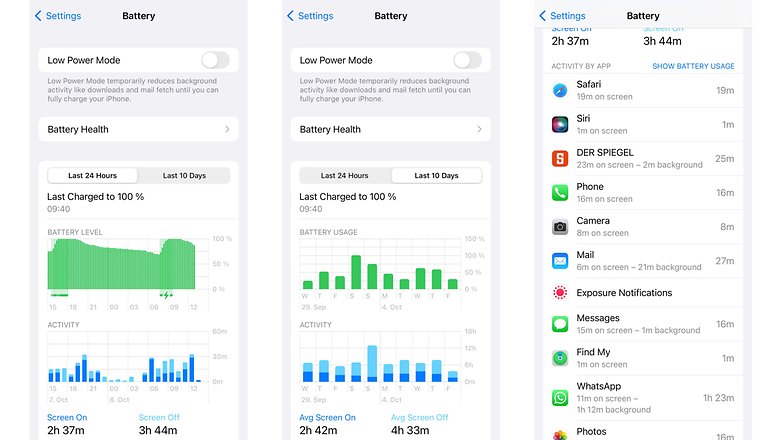
By the way, the iPhone 13 Pro comes without a separate power adapter, which Apple has been doing without for over a year in order to save waste and reduce its carbon footprint. So if you want a charging plug in addition to the USB-C to Lightning cable, you'll have to fork out $25 for a 20-watt power adapter.
Environmental protection and other important things...
That didn't make it under a different subheading, but should still be mentioned anyway.
The topic of "environmental protection" is something that Apple has not only championed just this year. By the year 2030, the company from Cupertino wants to work and produce its products by being completely carbon-neutral, and this ambitious goal includes the entire value chain, including all of its suppliers.
Apart from carbon emissions, Apple is also committed to the careful use of resources. The rare earths in MagSafe magnets are already made of 100% recycled materials. So are the gold and tin used, as well as other metals in the smartphone. Hopefully, this is a trend that many other manufacturers in all sectors can follow.
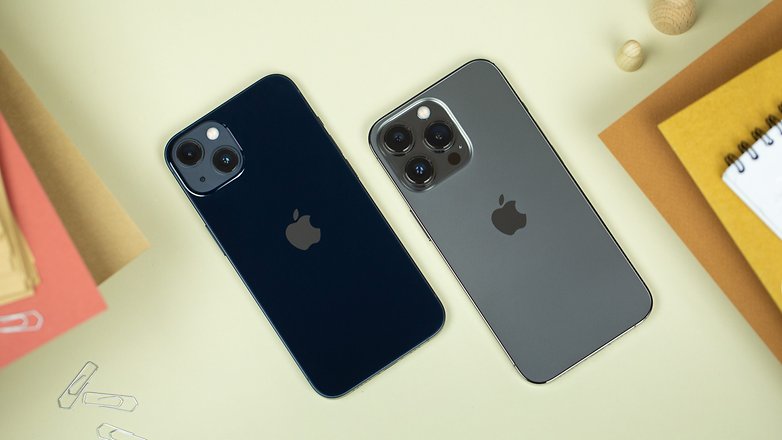
Speaking of MagSafe: This is a magnetic ring that is embedded at the back of the iPhone. Various accessories, such as charging stations, small stands or cases, and others can be stably "pinned" to this. This year, Apple is even bringing its cardholder for EC or credit cards with an NFC chip, which is thus integrated into the "Find My" network. If you accidentally leave the cardholder behind, the iPhone will alert you and let you know.
Conclusion: Is the iPhone 13 Pro still a good smartphone in 2023?
Smartphone reviews cannot solely rely on lab tests and raw data; personal preference and the device's specific use case also play a significant role. In 2021, the iPhone 13 Pro stood out as the best smartphone of the year.
Fast-forward to 2023, and despite its one-and-a-half-year age, it still holds up impressively with a superb display, high-performing SoC, and excellent camera. The iOS 16 update keeps it feeling fresh, matching the current iPhone 14 Pro's appearance, which we reviewed in 2022.
The only drawback in 2023 is that the iPhone 13 Pro still retails at the same price as the newer iPhone 14 Pro.
Review updated in June 2023 to include iOS 17 confirmed support. Previous comments were kept and may appear out of context.
